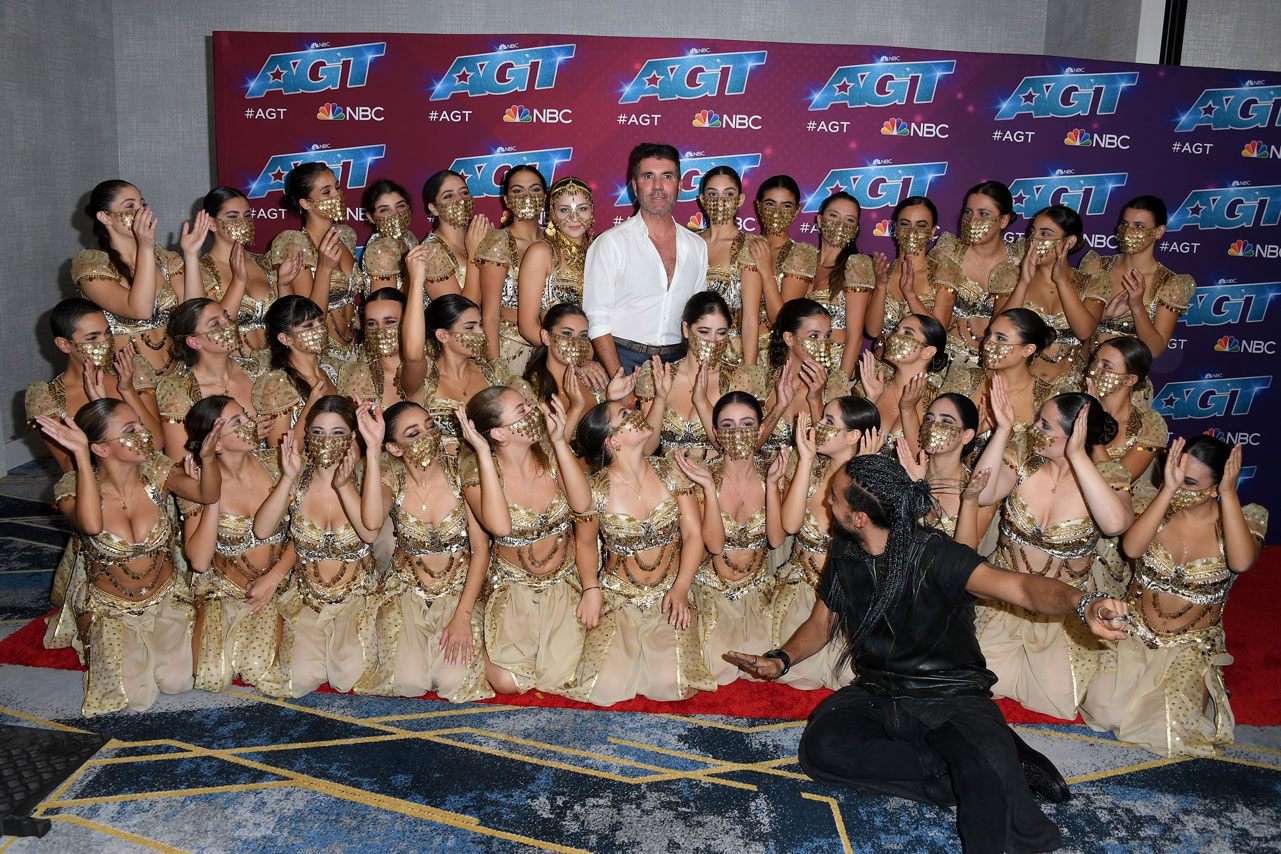Spotlight is a newsletter about underreported cultural trends and news from around the world, emailed to subscribers every Monday. Sign up here.
Last week, the Lebanese received an unexpected bit of good news. No, their politicians didn’t do the honorable thing and commit seppuku en masse. Nor did they return the billions their cartels stole over the years or pass desperately-needed reforms to tackle corruption, and, no, their banks did not return the money they’re holding hostage to depositors who are now impoverished by the ongoing economic crisis.
No, the bit of good news was the victory of a Lebanese dance troupe called Mayyas on “America’s Got Talent,” the reality TV show. Mayyas is a team composed of a group of talented young women and led by choreographer Nadim Cherfan.
Mayyas grabbed the attention of the show’s judges as early as their audition, a hypnotic dance performance with eye motifs, mesmerizing music, influences from around the world and movements whose magical flow look like they can be replicated only by creatures made of water.
The transcendence of that audition prompted Sofia Vergara, one of the celebrity judges, to vote for the troupe with the golden buzzer, which propels them directly to the live competition, before running onstage to embrace the girls. There they continued to impress, with a dazzling performance in the finale that earned them a well-deserved victory and the adulation of the audience.
The victory and its $1 million cash prize are a brief glimmer of light that will nevertheless make little difference in the lives of ordinary Lebanese who continue to suffer under the yoke of a mafioso ruling class that has stripped the country bare, blown up half the capital city, impoverished two thirds of the population and continues to cling to power. Just last week, we wrote in this magazine about a spate of bank robberies by ordinary citizens seeking to recoup some of their savings that the banks are holding hostage to secure life-saving treatments and basic supplies and necessities.
In the video compilation the show released of the golden buzzer moment, which features interviews with the competitors, the dancers and choreographer stressed that their participation was a form of empowerment for women, with Cherfan describing how Lebanon is not a place where women can build a career out of dancing and one of the young women explaining that the troupe had developed into a safe space for them to express their creativity.
Onstage, the dancers explained that the name “Mayyas” comes from a word describing the walk of a lioness. The name is significant — mayyas has been used for a long time in songs to describe the movement of a female love interest, but in some parts of the region, particularly in Egypt, the Arabic word for “lioness” is actually an insult that implies the woman is loose. Whether or not it was intended, it is a brilliant reclamation of the language.
I was struck, though, by Vergara’s comment as she rose to hit the golden buzzer. “I would be so honored to empower you even more in this journey because you deserve it, and I want to be part of this.”
While Lebanon is not Saudi Arabia, it is, like many parts of the region, vastly more unpleasant for women than men. Violence against women is rife, and women cannot pass on their citizenship to their children. Reduced to de facto second-class citizen status, they are far more likely to be subjected to religion-based oppression, among other things.
Vergara’s response, however, struck me because it reminded me of countless interactions my wife, friends and I have had. The assumption that being from Egypt, Syria, Lebanon or elsewhere puts one at a disadvantage that requires sympathy or assistance is often present in these interactions. They are in the slight tilt of the head as they ask about your family back in Aleppo, Beirut or Cairo, the desire to offer support and alleviate your supposed oppression and suffering.
It is not a bad faith or cynical reaction most of the time, but it sometimes does make you wonder whether you have agency: if you were given an opportunity because you are talented and hard-working or because you’re a diversity hire, whether your success in an endeavor comes down to your excellence or the pity of an outsider.
Mayyas won the competition because of the sublimity and beauty of their performance, not because they were oppressed and in need of saving. And that is enough.



